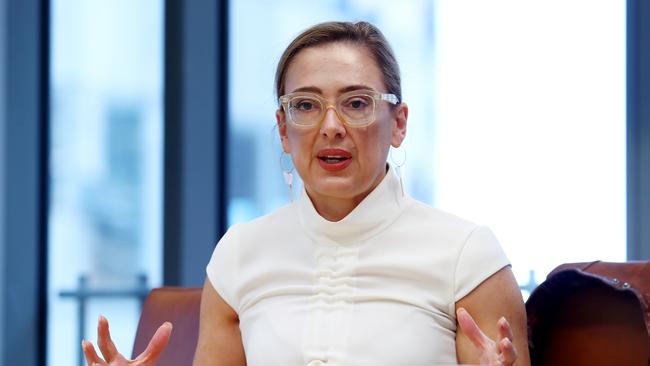‘Restore health insurance rebate’
Australia’s health insurance sector is calling for the industry rebate to be restored to its original level.

Australia’s health insurance sector is calling for the industry rebate to be restored to its original level as it warns that without further reforms to address rising healthcare costs, participation could drop to 30 per cent in the next decade.
The industry’s peak body, Private Healthcare Australia, has pitched in its 2019-20 budget submission a case to return the health insurance rebate — which has slipped to about 25 per cent — to 30 per cent for low and middle income earners.
Rachel David, chief executive of Private Healthcare Australia, said it was the first time the industry had publicly pushed for the rebate to be restored, adding it was time to put a “line in the sand”.
She said it would cost the government more to fund a person who dropped out of health insurance than it would be to reinstate the rebate to its original level.
“We have tracked consumer sentiment around private health insurance and private specialists since 1987 and at the moment the issue is that unless premiums start to go down we are going to see further dropouts and downgrades,” Dr David said.
Prime Minister Scott Morrison is looking to launch his bid to win the next election, expected in May, with an April budget.
Dr David said PHA’s submission was “bolder” than previous ones given it was an election budget. She said the industry body’s recommendations were also aimed at Labor and would form the PHA’s wishlist during the election campaign.
PHA, whose member funds provide healthcare benefits for more than 13 million Australians, outlined 10 reforms it said could address the affordability crisis that is forcing people to dump their product.
“We don’t need radical change but there are some specific reforms that will get the government the best value for their buck in terms of delivering a health system that is of excellent quality as well as delivering good access,” Dr David said.
Labor leader Bill Shorten has promised a Productivity Commission review of private health insurance should he win the election, to support his policy of capping annual premium increases at 2 per cent for two years.
One of the measures the commission would be tasked to review would be the $7 billion taxpayer-subsidised private health insurance rebate.
The rebate was introduced in 1998 by the Howard government. It was originally determined by a person’s age before Labor introduced income as another factor in 2012. The rebate entitlement is reduced each year by the Rebate Adjustment Factor and has been reduced from around 30 per cent in 2012 to about 25 per cent now for most members.
The PHA submission said that if health cost inflation and premiums continued to rise, private health insurance membership risked becoming the preserve of older and wealthier Australians, who would be locked into spiralling premium costs, which would further reduce participation.
“Once this spiral gains traction, it will be very difficult to reverse it without significant regulatory intervention,” PHA said.
As of June 2018, 54 per cent of the Australian population had a private health insurance policy, with 45 per cent having hospital cover. Dr David said without further reforms to address rising healthcare costs participation could drop to 30 per cent by 2030-35.
“If current conditions remain and we don’t address some of the underlying issues the scenario we have painted is quite realistic,” Dr David said.
She said the entire health industry had to make healthcare more affordable by ensuring patients were provided with the “right care” — right patient, right setting, right time.
The industry body recommended removing items from the Medicare Benefits Schedule that experts agreed were low value, wasteful or harmful.
It also suggested allowing health funds to fund specific outpatient services to help consumers avoid accumulating co-payments.
“These reforms (we proposed) are things that have been talked about for a long time, but when people’s wages were growing at 5 to 6 per cent, there wasn’t a lot of impetus to act,” Dr David said.
“Now with flat wages growth and health inflation globally around 5 per cent, we need to do something — the public sector as well — to ensure that every dollar we spend in the health sector is effective.”



To join the conversation, please log in. Don't have an account? Register
Join the conversation, you are commenting as Logout